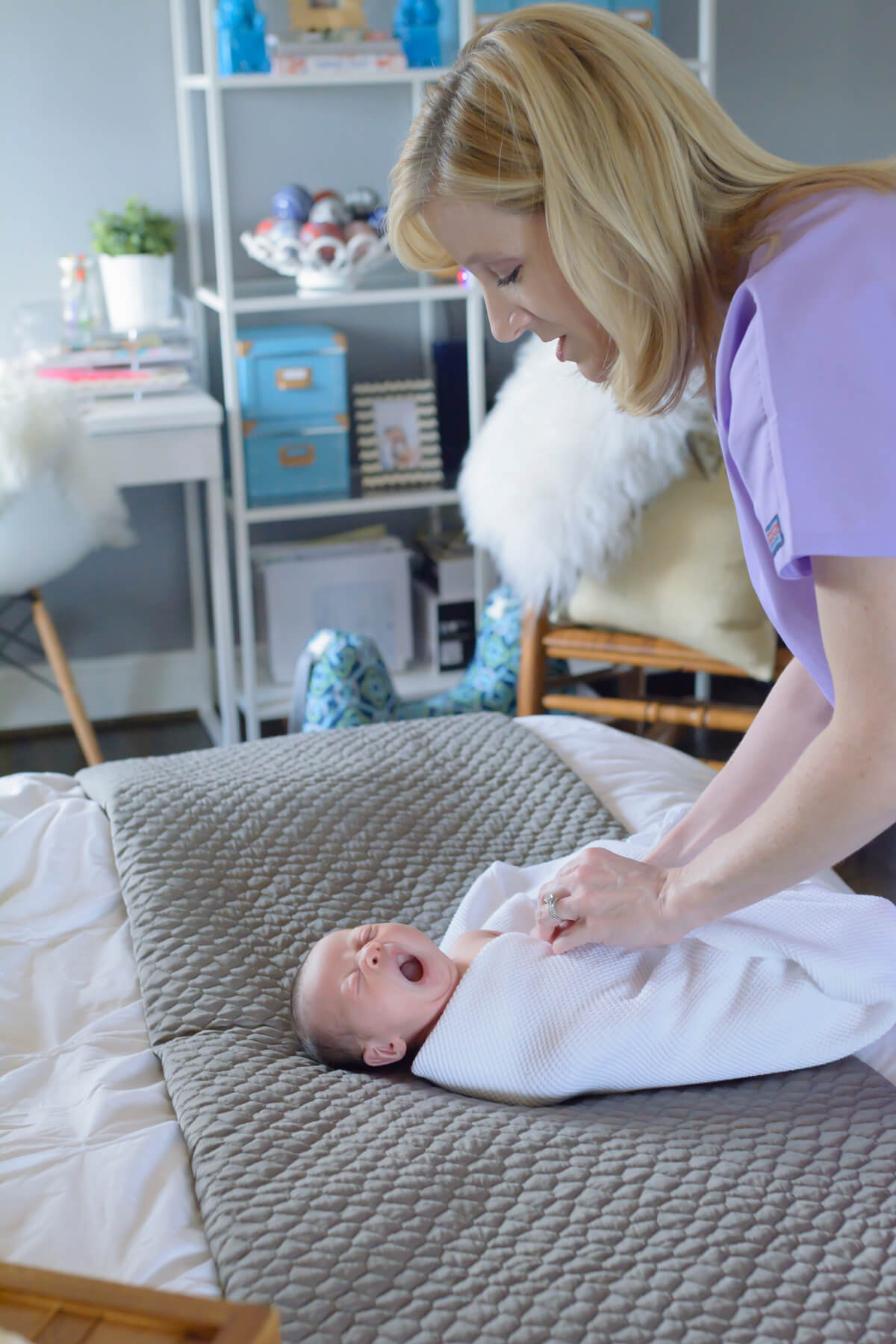10 Things You Need To Know About Newborn Health: A Comprehensive Guide for First-Time Moms and Dads
Raising a child is one of the most fulfilling and rewarding experiences a person can have. But it’s also one of the most challenging, especially when it comes to keeping your little one healthy. From the moment they are welcomed into the world, newborns are susceptible to various diseases and health conditions.
That’s why it’s so crucial for parents to educate themselves on newborn health and care. To help you get started, we’ve put together a comprehensive guide on everything you need to know about keeping your newborn healthy.
#1 Your Child’s First 28 Days Can Carry More Risks Than You Might Think
Studies reveal that a newborn’s health risks are highest during the first 28 days of life. Two thousand twenty statistics show that the average rate of deaths worldwide during this critical period is 17 for every 1,000 live births.
There are several reasons why the first month is so risky for newborns. First, their immune system is not yet fully developed, making them more susceptible to infections. Additionally, they are more likely to experience prematurity or low birth weight complications.
Thus, it is essential for parents to be extra vigilant during the first month of their child’s life and to seek medical help immediately if they notice any red flags.
#2 Your Newborn May Not Sleep Through the Night
One of the things you will have to prepare yourself for as a parent is pulling off countless all-nighters. Babies, especially newborns, may need to be fed every few hours and often wake up in the middle of the night.
Of course, this can be exhausting for parents, especially moms who just gave birth. This is why new mothers opt to hire doulas or a night nanny who can help feed and take care of the baby so they can get some much-needed rest.
#3 Good Nutrition is Key to a Healthy Newborn
The foundation of your child’s health starts with good nutrition from the moment they are born. This is why one of the essential elements of newborn health care is providing your little one with the proper nutrients.
One of the best ways to do this is through breastfeeding. The World Health Organization (WHO) recommends mothers breastfeed their babies for at least the first six months of life. Not only is breastmilk packed with nutrients and antibodies that help protect infants from disease, but the act of breastfeeding itself can foster a strong bond between mother and child.
Of course, not all mothers can breastfeed every time, and that’s okay. There are many solutions or alternatives, such as pumping and storing breastmilk for later or using infant formula. The important thing is that you are providing your newborn with the nutrition they need to grow and develop properly.
#4 Newborn Screening is Important for Early Detection of Health Conditions
As the old saying goes, prevention is ALWAYS better than cure. This is especially true when it comes to newborn health. However, early detection of health conditions can make a massive difference in treatment and outcome.
This is where newborn screening comes in. It is a three-step process that includes a heel prick test, a hearing test, and a pulse oximetry test. These tests are typically done within the first few days after birth and can help detect conditions such as congenital heart disease, cystic fibrosis, and sickle cell anemia.
#5 Keeping Up With Immunizations is Essential
Besides newborn screening, another critical aspect of newborn health care is immunizations. Immunizations help protect your child from potentially deadly diseases such as measles, polio, and whooping cough.

The Centers for Disease Control and Prevention (CDC) recommends that babies get their first dose of the hepatitis B vaccine within 24 hours after birth. They should also get their first dose of the DTaP (diphtheria, tetanus, and acellular pertussis) vaccine at two months old. A complete list of recommended immunizations can be found on the CDC website.
Of course, as with anything else, some risks are associated with immunizations. However, the benefits of immunizations far outweigh the risks. Immunizations not only protect your child but also help to create “herd immunity,” which in turn helps to protect other vulnerable members of the community, such as newborns and the elderly.
#6 Newborn Dental Care Can Start From Day One
That’s right! You don’t have to wait for your newborn’s teeth to appear before you start taking care of their oral health. The American Dental Association (ADA) recommends that parents clean their baby’s gums as soon as their first-day post-birth using a washcloth or gauze pads.
Once your baby’s teeth come in, you can use a soft-bristled toothbrush to brush their teeth. It’s essential to use a pea-sized amount of toothpaste and to brush gently to avoid damaging your delicate gums. Regular dental checkups should also be scheduled starting from around their first birthday.
#7 Poo Changes Are Normal But Can Also Be a Sign of Illness
Whether it’s the color, the frequency, the smell, or the consistency, changes in your baby’s poo can be worrying for parents. However, it’s important to remember that many modifications are perfectly normal, especially in newborns.
For example, it’s not uncommon for newborn babies to have greenish-black stools (meconium) for the first few days after birth. This is because meconium is made up of everything your baby has swallowed in the womb, such as amniotic fluid, skin cells, and lanugo (fine hair).
Other changes such as bloody stools, diarrhea, or constipation can also be expected, especially after your baby starts eating solid foods. However, if these changes are accompanied by other symptoms such as fever, irritability, or lack of appetite, it could be a sign of illness, and you should take your baby to see a doctor.
#8 Jaundice May Occur But Is Usually Harmless
Another aspect of newborn health that can be worrying for parents is jaundice. Jaundice occurs when there is an accumulation of bilirubin in the blood, making your baby’s skin and eyes look yellow. It is caused by various factors, such as an immature liver or excessive red blood cell breakdown.
Jaundice is usually harmless and will resolve independently within a few weeks. However, in some cases, it can be severe and may require treatment. If you are concerned that your baby may have this kind of jaundice, you must talk to your doctor.
#9 There’s More to Newborn Health Than Just Physical Well-Being
Of course, just like us adults, newborn babies need more than just a healthy body to thrive. They also need love, attention, and nurturing to help them feel safe and secure in their new environment.
Establishing a routine is one of the best things you can do for your newborn’s health. This could include set times for feedings, naps, and baths. Having a way will help to give your baby a sense of stability and predictability in their lives.
It is also essential to respond to your baby’s cues. For example, if they are crying, it could be because they are hungry, wet, tired, or need some cuddle time. By responding to their needs, you will help them to feel loved and secure.
#10 There’s a Lot of Help Available for You and Your Newborn
Taking note of everything mentioned above and the other responsibilities and changes that come with having a baby can be overwhelming. But don’t worry, you are not alone!
Much help is available to help you take care of your newborn. In addition to your family and friends, you can also seek help from your doctor, a lactation consultant, or a postpartum doula. These professionals can offer you support and guidance regarding newborn health and care.
Remember, taking things one day at a time is the most important thing. Before you know it, your newborn will be all grown up!
Things You Can Do Before Welcoming Your Newborn
Still getting cold feet about giving birth and bringing your tiny one home? Don’t worry! Here are a few things that can help you ensure newborn health and care even before day one:
Get Regular Prenatal Care
Of course, as the mother carrying the baby, you must take good care of yourself too! And one of the best things you can do is to get regular prenatal checkups. This will help ensure that both you and your baby are healthy and that potential problems are detected early.
Your doctor can also answer any questions about newborn health and care. So, don’t hesitate to ask for help if you’re feeling unsure or overwhelmed.
Attend Parenting and Newborn Care, Classes
Another thing that can be helpful is to attend parenting and newborn care classes. These classes can teach you almost everything about newborn health and care, from breastfeeding to establishing a bedtime routine. They can also help you be more confident about transitioning to parenthood and overcoming any challenges you may face.
Plan for Postpartum Recovery
One of the often most overlooked aspects of newborn health and care is the mother’s postpartum recovery. This is the period after childbirth when your body is healing and adjusting to its new state.
Because most of the focus is on the baby, it is easy to forget that the mother needs time to recover. But it is important to remember that it’s impossible to provide for all your little one’s needs if you’re not taking care of yourself first.
So, plan for some help after the baby is born. This could be in the form of family, friends, a postpartum doula, and even a therapist or counselor if you feel you need someone to talk to. Having a plan in place will help to ease some of the stress and anxiety that comes with having a newborn. And it will allow you to focus on bonding with and to care for your little one.
Things You Can Do After Giving Birth To Your Newborn
Suppose you’re close to your due date or have already welcomed your little one into the world; congratulations! Here are a few things you can do to ensure newborn health and become more confident about taking care of your baby.
Keep Up With Newborn Screenings and Immunizations
As mentioned, these medical tests and vaccinations are essential for newborn health. So, be sure to keep up with them according to the schedule recommended by your child’s healthcare provider. If you’re unsure where to begin, you can ask your doctor or a nurse for guidance.
Practice Safe Sleep Habits
One of the most important things you can do for newborn health is practice safe sleep habits. This means creating a safe sleeping environment for your baby and ensuring they always sleep on their back.
You should also avoid using too many blankets, pillows, stuffed animals, and other soft objects in the crib, as these can increase the risk of Sudden Infant Death Syndrome (SIDS). Instead, dress your baby in appropriate sleep clothing to keep them comfortable.
Track Your Newborn’s Developmental Milestones
As your little one starts to grow and develop, it can be exciting to track their milestones. This will help you ensure they are on track and flag potential developmental problems.
You can track your newborn’s development in a few different ways. One is to use a baby milestones chart you can get from your doctor or find online. Another is to download a baby tracker app onto your phone or tablet.
You can also jot down notes in a journal or baby book. This can be a great way to document your baby’s first year and cherish the memories for the years to come.
Hire a Newborn Care Specialist
If you are a working mom or cannot take care of your newborn full-time, you may consider hiring a newborn care specialist. These professionals are trained in developing health and can provide you and your baby support during this challenging yet fantastic time!
Welcome, Your New Bundle of Joy, With the Right Preparation and Care!
Being a new mom or dad comes with many challenges and uncertainties, especially regarding newborn health. Still, with the proper preparation and care, you’ll be sure to overcome any obstacle that comes your way. So keep these tips in mind and enjoy this time with your little one!
Please contact Motherhood Center to help you get answers to your questions about Newborn Health in Houston.
Motherhood Center is the expert in Newborn Health
3701 W. Alabama Ste 230, Houston, TX 77027 Phone: 713-963-8880
You may also be interested in the following topics related to Newborn Health




